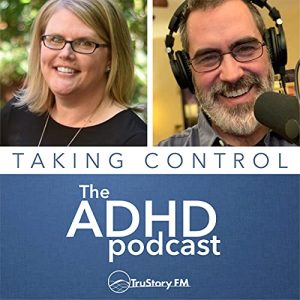
22 News Mass Appeal: Managing your child’s separation anxiety


 (Mass Appeal) – When kids are home from school and it’s vacation, they often default to using their devices 24/7 and that is certainly not ideal. Today we welcome Clinical Psychologist Doctor Sharon Saline, with some practical ways to manage screen time for kids.
(Mass Appeal) – When kids are home from school and it’s vacation, they often default to using their devices 24/7 and that is certainly not ideal. Today we welcome Clinical Psychologist Doctor Sharon Saline, with some practical ways to manage screen time for kids.
 “Have you ever tried talk therapy? It can be intimidating, learning to open yourself up to a stranger, but with the right therapist, it doesn’t have to be uncomfortable for long. We’re continuing our series on ADHD interventions with Dr. Sharon Saline, psychologist and ADHD specialist. She joins to talk to you, the therapy novice, about what you can expect from therapy, what you should expect from your relationship with your therapist, and how you can make the therapy relationship thrive in support of your ADHD.” Listen to the episode below, or click here to listen at TakeControlADHD.com.
“Have you ever tried talk therapy? It can be intimidating, learning to open yourself up to a stranger, but with the right therapist, it doesn’t have to be uncomfortable for long. We’re continuing our series on ADHD interventions with Dr. Sharon Saline, psychologist and ADHD specialist. She joins to talk to you, the therapy novice, about what you can expect from therapy, what you should expect from your relationship with your therapist, and how you can make the therapy relationship thrive in support of your ADHD.” Listen to the episode below, or click here to listen at TakeControlADHD.com.
“Do you set unrealistic goals for yourself, fret about disappointing others, and compare yourself negatively to those around you? If so, you are probably like many other people with ADHD who struggle with perfectionism. At times, you may want something to be right so much that it becomes difficult to start tasks, assignments, and projects, and complete them. In other moments, the desire to do something well motivates you to give your best efforts and helps you feel proud of your work.” Read the full article by Dr. Saline!
 As the holiday season unfolds, my clients and friends express feeling very stressed. Some people have a long list of gifts to buy and wait until the last minute to do their shopping. Some schedule back-to-back social plans and celebrate with gusto. Other folks dislike the holidays altogether and would prefer to hide in bed under the covers until January. In general, everyone seems to be in a state of perpetual motion, running from one thing to the next, trying to get things done and seeing family and friends. This pace is not only challenging to maintain, but it’s also especially hard for kids and adults with ADHD who get easily overwhelmed, even without the holiday fervor. How can you create experience that is fun, rewarding and calmer for you, your neurodiverse family? Get ready for simplifying this holiday season.
As the holiday season unfolds, my clients and friends express feeling very stressed. Some people have a long list of gifts to buy and wait until the last minute to do their shopping. Some schedule back-to-back social plans and celebrate with gusto. Other folks dislike the holidays altogether and would prefer to hide in bed under the covers until January. In general, everyone seems to be in a state of perpetual motion, running from one thing to the next, trying to get things done and seeing family and friends. This pace is not only challenging to maintain, but it’s also especially hard for kids and adults with ADHD who get easily overwhelmed, even without the holiday fervor. How can you create experience that is fun, rewarding and calmer for you, your neurodiverse family? Get ready for simplifying this holiday season.
Start with a mindset of “SIMPLIFY, not COMPLEX-IFY.” Usually the holiday overwhelm comes from one or both of two main sources: (1) leaving things until the last minute and (2) trying to do too much. Let’s face it—EVERYTHING takes longer than we think it will. If you start planning your tasks with that mentality, and give yourself more time to do things, the process will go much more smoothly.
1. Shorten lists and outings
 Make a master list, and then break it down into shorter ones. Ideally, your family might stop at 1 or 2 places in one trip, but plan for no more than 3-4 different places in one outing. Strategize by mapping out where you need to go beforehand, and group places together that are near each other.
Make a master list, and then break it down into shorter ones. Ideally, your family might stop at 1 or 2 places in one trip, but plan for no more than 3-4 different places in one outing. Strategize by mapping out where you need to go beforehand, and group places together that are near each other.
2. Teach while you lead
Teach your kids with ADHD to practice simplifying, too. Help your kids learn shopping strategies by explaining what, why and how you are doing things when you go out together to run errands.
3. Take breaks to rest and re-connect
Schedule in a break for hot chocolate or tea to break up the trip. It will encourage you and your family to reset between one stimulating environment and the next. Check-in with yourself and each other to see how you’re feeling and if you’re ready for the next stop.
4. Acknowledge your accomplishments
Sometimes we’re so overwhelmed with what we know we still have to do, we forget about how much we’ve already accomplished. Be sure to cross things off your (shortened) lists when they are completed. You can do this yourself, or ask your kids to assist you. It’s easier to see and remember your accomplishments this way.
 The holiday season is usually jammed packed with things to do, people to see, and places to go. As parents, we have to take into consideration how much our ADHD children and teens can actually tolerate, process and enjoy. Sometimes you have to curb your own desire and capacity to do several things in a day in order to help regulate what your kids can really manage. Part of the holiday stress for ADHD kids and families comes from having too many of these activities in a row and not enough ‘down time’ to process them. When your ADHD daughter has a meltdown at 6 p.m. because she doesn’t like the mac and cheese, it probably has nothing to do with the food and everything to do with unloading steam from holding it together for so long throughout the day. Simplifying the holiday tasks will help, but you also have to consider how many gatherings and social engagements are truly necessary for a happy holiday season.
The holiday season is usually jammed packed with things to do, people to see, and places to go. As parents, we have to take into consideration how much our ADHD children and teens can actually tolerate, process and enjoy. Sometimes you have to curb your own desire and capacity to do several things in a day in order to help regulate what your kids can really manage. Part of the holiday stress for ADHD kids and families comes from having too many of these activities in a row and not enough ‘down time’ to process them. When your ADHD daughter has a meltdown at 6 p.m. because she doesn’t like the mac and cheese, it probably has nothing to do with the food and everything to do with unloading steam from holding it together for so long throughout the day. Simplifying the holiday tasks will help, but you also have to consider how many gatherings and social engagements are truly necessary for a happy holiday season.
1. Sit down with your family, and decide how many activities in a day you each can really handle this holiday season.
2. Talk about what constitutes ”down time’ for each person, and make sure it includes something that is settling rather than stimulating. Limit individual technology use, and encourage quiet activities, such as playing games, reading or listening to music. Maybe watch your favorite family holiday movie. Write down these ideas and post them on the refrigerator so people can refer to them when they are most needed.
Good luck, and Happy Holidays to you and your family!

Read more blog posts:
Watch on Dr. Saline’s YouTube Channel:
Deeper dive: https://drsharonsaline.com/product/home-seminar/
Read the article featured on YourTango! Read the original blog post here. 
Notifications